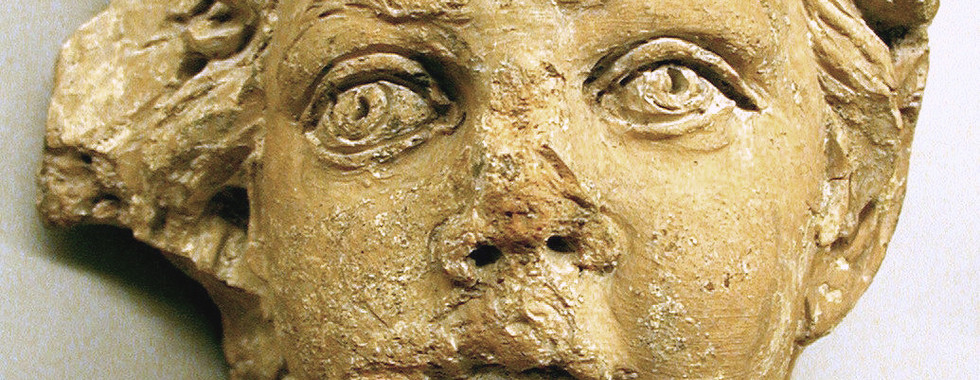3 genres emerged from Ancient Greek theatre. These were tragedy, comedy and satyr (satire) plays. Although there are other drama genres today, these genres still manage to entertain and bring joy to many people.
Tragedy
''Tragedy isn’t getting something or failure to get it;
it's losing something you already have.
Waste not fresh tears over old griefs.''
– Euripides.
Tragedies were very popular in Ancient Greek times and were often set in the past. They contained human suffering because audiences craved a tragedy or a tragic moral at the end of the story.
Fun fact: The word 'tragedy' comes from the Greek word 'tragos'. The English translation meaning 'goat and oide' which is also known as song.
Early performances of tragedies consisted of 1 actor. Frequently they wore a costume, covering their whole body (including a mask). Succeeding that, 2 actors joined the play. There was a main part (the protagonist) and 2 side parts (the agonists). The agonists played every other part in the play, making use of masks. It remained like this for many years.
Tragic playwrights made their audience comprehend the world around them. They would think about questions such as ' Why do we feel hurt? ' They were seen as educators of the age. Three of the most famous tragic playwrights were Aeschylus (killed at the age of 67, when an eagle mistook his bald head for a rock and dropped a tortoise on it to try and crack its shell!), Sophocles and Euripides.
Some of their plays include Euripides' Medea, Aeschylus' Persians, and Sophocles' Oedipus Rex. Some plays are fully lost and for some only fragments still remain.

Comedy
Comedy consists of characters who are there solely for the audience to laugh at.
– Aristotle
Comedy opened a window into the Ancient Greek legal system, education, religious practices, and political systems. The Greek word for comedy (kōmōidía) actually means 'revel' and 'song'. According to Aristotle, comic plays did develop from song!
The evolution of Ancient Greek comedy can be split into 3 different eras:
Old comedy
Middle comedy
New comedy
Old comedy relied a lot on the audience's participation, along with the chorus, playing a vital role. At this time, in the plays, Greek myths and religion were made fun of through high-spirited singing, dancing and jesting. The main playwright of the initial phase was Aristophanes, who wrote The Clouds and The Frogs.
Middle comedy had reduced involvement between the audience and on-stage actors. The comedy at this stage began to be aimed at the situation that the character was in rather than the character themselves.
New comedy is similar to the situational comedies that we see on our televisions today. They featured average, everyday people who did not have special or super natural abilities, involved in stories typically about frustrated romance. The chorus became much less important to the play and they were there only to provide some additional entertainment through music and dance at intervals.

Satyr (Satire)
Rather fail with honour than suceed by fraud.
– Sophocles
The Birth of Satyr (Satire)
Satire was born of comedy and tragedy (drama).
Tragedy (Drama) + Comedy = Satire (Tragicomedy)
Satyr plays were performed between the tragedies, making fun of their characters. The plays would mostly be based on sexual themes and also topics like drunkenness. This type of performance was sometimes called : Tragicomedy. They consisted of satyrs (half goat, half men, from mythical stories). There were two aims of these plays:
To remember Dionysus and his godly power to release people from anxiety and fear.
To provide the audience with cheerful entertainment whilst also educating the audience on the need to change their behaviour.
Fun fact: Only one complete satyr play has survived up to now - Sophocles' Cyclops. The remainder of the plays have either been lost entirely or only fragments remain.
Which genre is your favourite?
Tragedy
Comedy
Satyr




























Comentarios